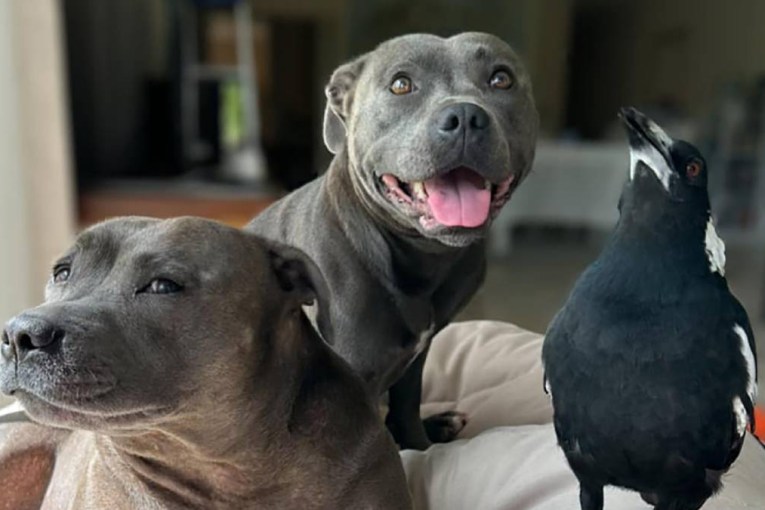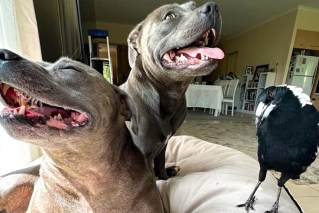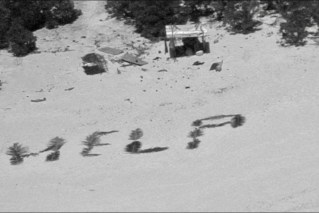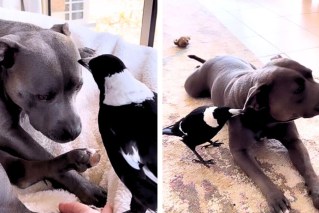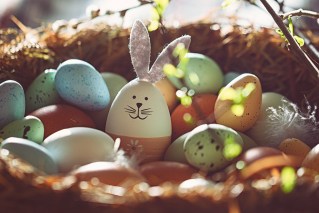Baby gibbon hand-raised at Perth Zoo back home
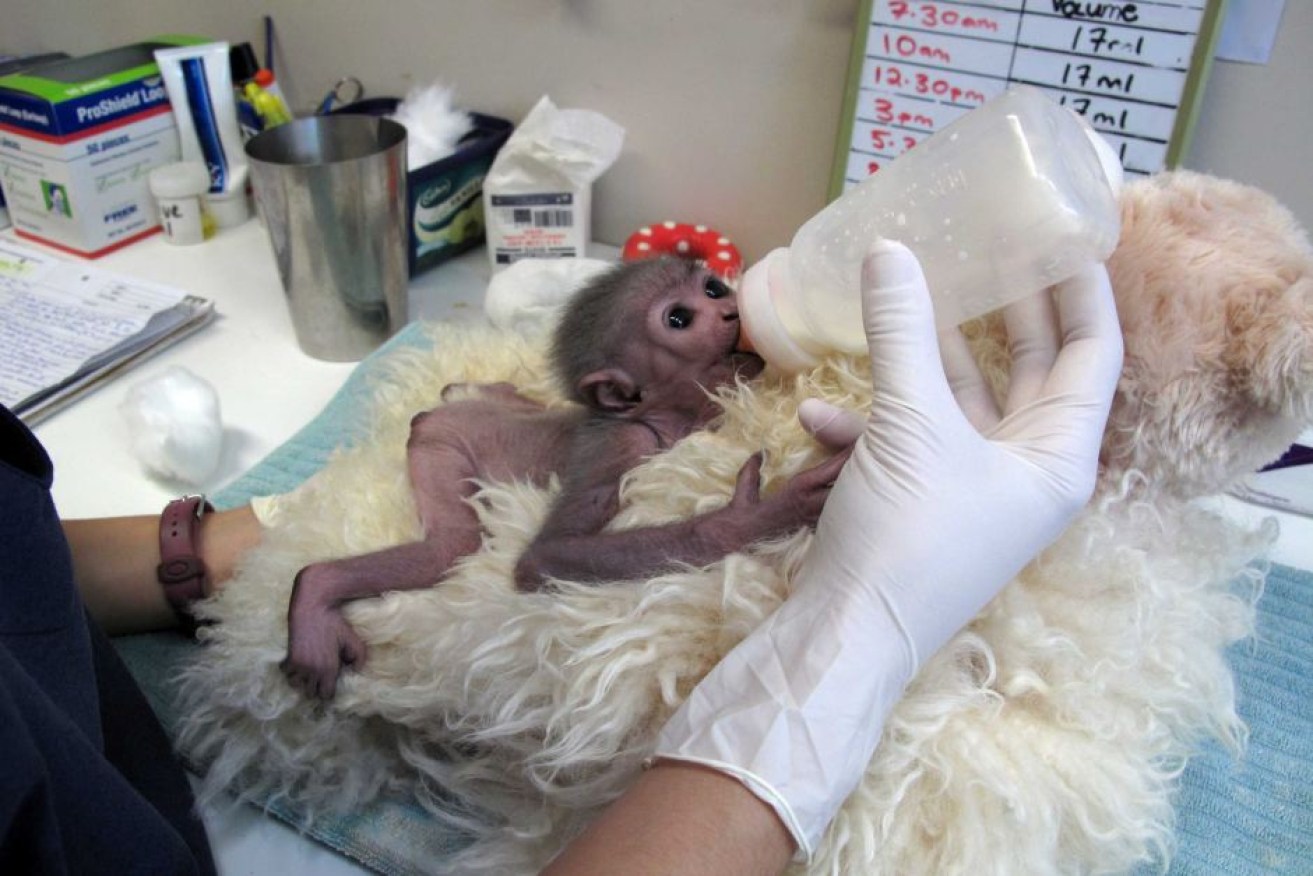
wa was hand-raised by zookeepers after being found "limp and lifeless" six days after his birth. Photo: ABC
A baby gibbon hand-raised at Perth Zoo after his mother had trouble caring for him is now back with his family and doing well.
The rare Javan gibbon, named Owa after the Indonesian word for gibbon, was born to 31-year-old mother Hecla at the zoo last June.
Just six days after his birth, Owa was found “limp and lifeless” and it became clear Hecla was not producing enough milk to sustain him.
• A beautiful, hairy bundle of joy for Melbourne Zoo
• Baby tortoises found on Galápogas island
• Baby chameleons light up Taronga Zoo
His keeper Holly Thompson said Owa was now nine months old and thriving.
“To see him now, jumping around, climbing on ropes, brachiating – the hand over hand motion – like a normal gibbon, also doing these calls, eating predominantly solids, that’s all a lot of work,” she said.
“He’s going extremely well, he’s reached all the milestones that we wanted him to reach, things like he’s starting calling with his family. They call in the morning to mark their territory.”
Dedicated team effort to save baby gibbon
Staff were rostered on around the clock to care for the newborn gibbon last year, but they were careful to keep the ape at arm’s length so it could eventually return to family.

Owa was hand-raised by zookeepers after being found “limp and lifeless” six days after his birth. Photo: Perth Zoo
That meant staff covering their faces and alternating so no-one spent too much time with Owa, and Ms Thompson said it had worked.
“I do think that people don’t quite understand just how much work goes into it. It’s been a dedicated team effort,” Ms Thompson said.
“It was around-the-clock care, so we were doing 12-hour shifts in the beginning, it was 10 bottle feeds a day, every couple of hours.”
Javan gibbons, also known as silvery gibbons, are Java’s last remaining ape and are endangered due to habitat destruction and the pet trade.
Zoo staff said gibbons were likely to be the next primate species to become extinct.
“There’s probably under 2,000 left of this species in Java so it’s up to us to help them,” she said.
“We’ve got a breeding program here at Perth Zoo, it’s an international breeding program.
“Owa, he will go on to breed, to form a breeding pair either here or elsewhere in Australia, or even possibly in the wild.
“He’ll stay with his family group anywhere from six to eight years of age and then we’ll make that call.”
The zoo is hosting the International Gibbon Conference this week.
-ABC
